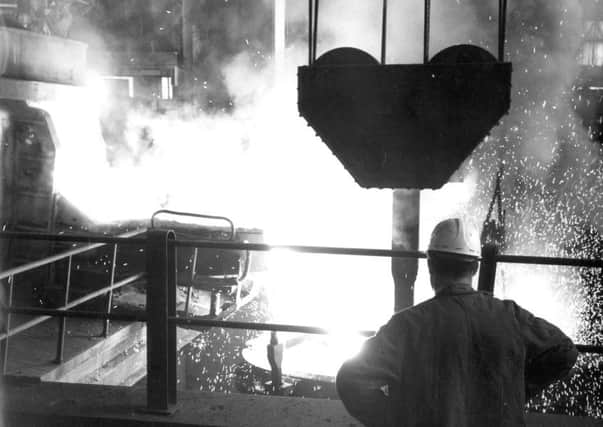Bernard Ingham: Woe betide if Britain is no longer a hive of industry


I said that if that were true (some say he is 5ft 6in) he would be advised where I come from “to put some horse muck in his clogs”.
My colleague, from Castleford, felt obliged to translate this into “fertilise his footwear to make him grow”.
“And did you wear clogs?” our Southern companion asked.
“Yes, indeed,” I replied.
Advertisement
Hide AdAdvertisement
Hide Ad“Everybody in Hebden Bridge wore iron-shod clogs when I was a lad – except those who thought they were something – until we went to grammar school.”
What is more, this universal footwear – though never on Sundays – had its very own manufacturing centre: Maude’s Clog Soles (later Walkley’s) at Fallingroyd. It even attracted coach parties.
Their mill has stood empty for years – apparently evidence of de-industrialisation culling yet another Upper Calder Valley manufacturer after the 1960s collapse of textile and clothing.
In fact, Walkley’s, though less obtrusively, is still making clogs – anything from wacky to dance and even high-heel clogs – in a mill unit in Mytholmroyd. An old trade with new lines lives on.
Advertisement
Hide AdAdvertisement
Hide AdAt the other end of the scale, steel in some ways is a special case because of dumping and beggar-my-neighbour duties and quotas in an increasingly globalised economy, though UK-imposed energy costs intended to slow climate change are an entirely unnecessary burden.
But steel is a strategic product and Britain needs it to avoid vulnerability.
Leaving aside nationalisation, the Government would be right to support it to retain one fundamental of a serious manufacturing nation.
In steel’s extremis, we are now nationally facing the question we found awkward over lunch: is there any future for manufacturing in modern Britain?
Advertisement
Hide AdAdvertisement
Hide AdThat question is all the more topical because of the widening trade deficit that bred immediate post-war export and Buy British drives.
In the final quarter of last year we were living further beyond our means in peacetime – by a cool £33bn – than since Bank of England records began in 1772.
As the current BoE governor, Mark Carney says, we are relying on “the kindness of strangers” – foreign investors who see a good return on their capital in Britain.
After all, the UK has one of the best- performing major economies in the world, though manufacturing is at best growing only slowly.
Advertisement
Hide AdAdvertisement
Hide AdBut this kind of spending spree, combined with a large and politically difficult budget deficit, simply cannot go on.
Nor can we sensibly rely on financial services, the arts and tourism to pay our way. We need to make and sell the best and widest variety of widgets the world over.
But let’s get things in perspective. Even though services represent 79 per cent of the economy, British manufacturing, at around 11 per cent, is far from dead as our motor car industry proclaims.
We are currently the 11th largest manufacturing nation in the world, employing 2.6 million people and accounting for 44 per cent of our exports and 69 per cent of business R&D.
Advertisement
Hide AdAdvertisement
Hide AdWe simply need more of it, performing more efficiently, to redress the balance between industry and services. That re-tilting of the balance cannot be done by government alone. It can encourage it with incentives and stressing the importance to the national interest of profitable manufacturing.
But in the end it depends on industry itself. We need more firms with the right products at the right price in the right places as soon as possible.
We certainly need to put behind us the old snobbish notion that somehow white collar jobs are more desirable than blue-collared ones. Let’s face, a lot of industrial jobs are no longer “big and mucky”.
As for those ridiculous rewards to City operators, which irk me no end, there is something intrinsically more wholesome in manufacturing than gambling your way through life.
Advertisement
Hide AdAdvertisement
Hide AdWe need a scheme for the development of manufacturing industry that repeatedly stresses its importance and recognises all in industry who deliver goods the world wants to buy.
It has to start with the improvement of technical and design education and the teamwork between inventor, entrepreneur, designer, engineer, salesman and skilled workforce to turn ideas into eminently marketable goods.
Britain’s exit from the EU would be just the time to launch a manufacturing drive because the world would then be truly at our feet.
To put it simply, we need to put some horse muck in our entrepreneurial clogs – and grow.